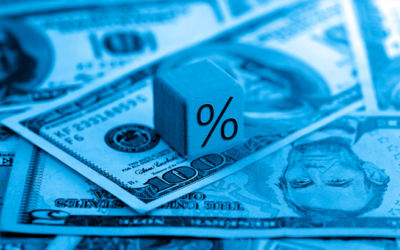
“Saving for a down payment isn’t the only expense you need to plan for.”
Saving for a down payment is a key step in the homebuying process, and it’s not the only piece you need to include in your budget. Another factor that’s important to plan for is the closing costs required to obtain a mortgage.
What Are Closing Costs?
According to Trulia,
“When you close on a home, a number of fees are due. They typically range from 2% to 5% of the total cost of the home, and can include title insurance, origination fees, underwriting fees, document preparation fees, and more.”
For those who buy a $250,000 home, for example, that amount could be between $5,000 and $12,500 in closing fees. Keep in mind, if you’re in the market for a home above this price range, your costs could be significantly greater. As mentioned before,
Closing costs are typically between 2% and 5% of your purchase price.
Trulia gives more great advice, saying,
“There will be lots of paperwork in front of you on closing day, and not enough time to read them all. Work closely with your real estate agent, lender, and attorney, if you have one, to get all the documents you need ahead of time.
The most important thing to read is the closing disclosure, which shows your loan terms, final closing costs, and any outstanding fees. You’ll get this form about three days before closing since, once you (the borrower) sign it, there’s a three-day waiting period before you can sign the mortgage loan docs. If you have any questions about the numbers or what any of the mortgage terms mean, this is the time to ask—your real estate agent is a great resource for getting you all the answers you need.”
Bottom Line
Let’s get together to discuss the homebuying process, to be sure your plan includes budgeting for what you need to purchase your dream home – without any surprises!
To view original article, visit Keeping Current Matters.
How Mortgage Rate Changes Impact Your Homebuying Power
Real estate agents have the expertise to help you understand what’s happening and what it means for you.
What Credit Score Do You Really Need to Buy a House?
While many lenders use credit scores like FICO Scores to help them make lending decisions, each lender has its own strategy.
Is Affordability Starting to Improve?
While affordability is still tight, there are signs it’s getting a little better and might keep improving throughout the rest of the year. Here’s a look at the latest data.
Are There More Homes for Sale Where You Live?
Increased housing supply spells good news for consumers who want to see more properties before making purchasing decisions.
Where Will You Go After You Sell?
Want to see what’s available? Your real estate agent can show you what homes are for sale in your area, so you can see if there’s one that works for you and your needs.
Helpful Negotiation Tactics for Today’s Housing Market
One thing is true whether you’re a buyer or a seller, and that’s how much your agent can help you throughout the process.





